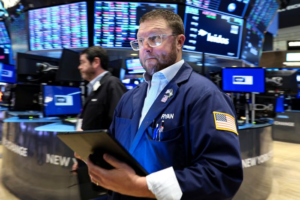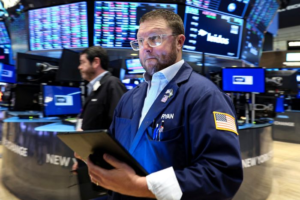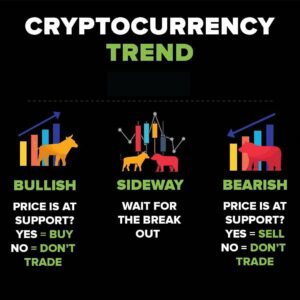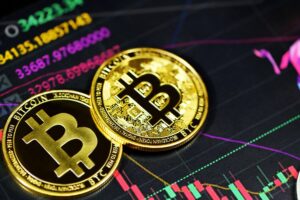

Russia’s invasion of Ukraine is exposing the trade-offs in a hot Wall Street product meant to encourage good governance.
Environmental, social and governance, or ESG, funds have become a top trend, promising to boost returns while bettering the world by avoiding countries prone to pollution, corruption and even war. The strategy backfired on two of its biggest advocates—
Chase & Co. and
BlackRock Inc.
—when Russia invaded Ukraine and returns in one of their ESG strategies lagged behind more conventional funds.
Investors who bought a $2.1 billion BlackRock emerging-markets bond fund that tracks a JPMorgan ESG index have lost 4.74% since the invasion began, compared with a 3.78% loss for investors in its traditional emerging-markets fund, according to data from S&P Capital IQ. The ESG fund underperformed because it had relatively large allocations to Russian and Ukrainian government bonds and was slightly more sensitive to U.S. interest-rate moves, people familiar with the matter said.
The overexposure traces back to data JPMorgan buys from ESG-scoring companies such as Sustainalytics and to its index methodology, people familiar with the product said. JPMorgan, a self-styled leader on sustainability in finance, said within weeks of the invasion that it would cut Russia from its indexes.
“It becomes a question of whether the index owners are allocating capital appropriately,” said Fergus McCormick, director of sovereign research at Emerging Markets Investors Alliance, a nonprofit promoting good governance. “We had a lot of signals that some investors and analysts were taking the Russia risk seriously, but the industry as a whole was lulled into complacency.”
Money managers are rolling out sustainable investing in virtually every market from stocks and bonds to commodities and private equity, leaving regulators and investors to grapple with what qualifies for the label and what it even means.
Analysts and investors who don’t employ ESG strategies were also blindsided by Russia’s attack and the extent of the West’s retaliation. Credit rating firms ranked Russia as investment-grade in mid-February. Still, advocates of sustainable investing have touted it as a way to reduce reputational and political risk for their clients by accounting for such factors as carbon footprint, civil liberties and access to education.
“Bond investors’ main ESG focus is on mitigating downside risk,” BlackRock has said in promotional materials for its funds.

Many investors were blindsided by Russia’s attack on Ukraine and the extent of the West’s retaliation.
Photo:
Philippe De Poulpiquet/Zuma Press
JPMorgan had about 3.2% of its ESG emerging-markets bond index in Russian bonds and 2.1% in Ukraine in February, a person familiar with the matter said. Its conventional bond index was 2.7% invested in Russia and 1.8% in Ukraine. Both countries are known for corruption and weak governance.
JPMorgan and BlackRock unveiled the ESG index and ETF four years ago, proposing to combine data and ESG scores with ethical factors and exclusions.
The fund grew slowly until 2020, when ESG entered the mainstream and the fund’s assets swelled to $1.7 billion from about $600 million, according to data from Morningstar Inc. That same year, the World Bank found an income bias in “sovereign” ESG scoring in a study of ESG data companies, including those used by JPMorgan.
“Sovereign ESG scores aren’t measuring how sustainable countries are,” said Teal Emery, a consultant on ESG issues for banks and money managers who was a co-author of the study. “For sovereigns, it’s very related to how wealthy a country is, which correlates highly to more per capita carbon emissions.”
JPMorgan has recently been working with its data providers to adjust the issue, people familiar with the matter said.
SHARE YOUR THOUGHTS
How have you adjusted your portfolio following the invasion of Ukraine? Join the conversation below.
Government ESG scores assigned by six data providers have a high correlation to national income, creating a bias, according to the World Bank’s report of the study. Sustainalytics, which JPMorgan uses for its index, “has the highest correlation with national income,” according to the report.
Russia had a higher weighting in JPMorgan’s ESG index because it excluded about 15% to 20% of the countries in the conventional index for failing to meet minimum ESG scores, boosting allocations to countries that made the cut. Angola, India and Nigeria were barred from the ESG index, while its weightings of relatively wealthy countries such as Chile, Panama and Saudi Arabia were much higher than in the conventional index, an emerging-markets hedge-fund manager said. Russia’s vast fossil-fuel and metals reserves make it one of the richer emerging markets.
Sustainalytics develops its government ratings by measuring national wealth, which includes natural resources, human capital and institutional capital, said Valiant Ip, the firm’s director for ESG products. “We believe strongly in the robustness of our country-risk framework because it takes into account the wealth aspect of a country and also a country’s ability to manage its wealth in an effective and sustainable manner,” he said.
Phil Torres, an emerging-markets bond fund manager at Aegon Asset Managements, said there is an inherent contradiction in the current marketing of government ESG products as both a way to reduce risk and to do good.
Clients interested in ESG “are hoping for an investment vehicle that does well by the world, whereas ESG as a concept and most vendors of ESG data and ratings go at it from the other end,” Mr. Torres said.
Aegon is developing an alternative sustainable-investing model for emerging-markets bonds that focuses on finding countries that might have low ESG scores today but are doing the most to improve, according to Mr. Torres. The new product will invest in governments with proven good governance and track records of providing basic health and welfare needs, he said.

As the Ukrainian war rages, JPMorgan has been working with ESG data providers to adjust inputs to its indexes.
Photo:
Vadim Ghirda/Associated Press
Write to Matt Wirz at matthieu.wirz@wsj.com
Copyright ©2022 Dow Jones & Company, Inc. All Rights Reserved. 87990cbe856818d5eddac44c7b1cdeb8
















